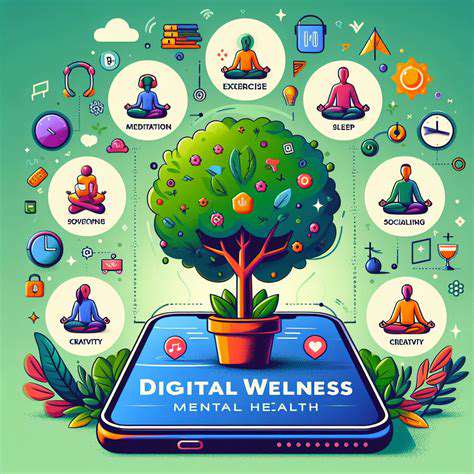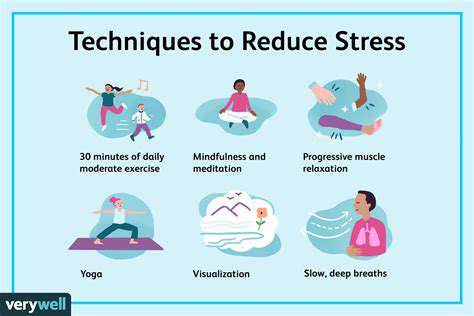How to Create a Healthy Relationship with Technology
The Allure and Anxiety of Automation
Technology's relentless march toward automation presents a compelling argument for increased efficiency and productivity. Imagine a world where repetitive tasks are handled by machines, freeing up human workers to focus on more creative and strategic endeavors. This vision, however, often clashes with the very real anxieties surrounding job displacement and the potential for widening economic disparities. Navigating this double-edged sword requires careful consideration of the societal implications of technological advancement.
The automation of tasks, while potentially leading to significant gains in efficiency, also raises concerns about the future of work. How do we adapt to a rapidly changing job market? What support systems are needed to help workers transition into new roles? These are crucial questions that need to be addressed to ensure that technological progress benefits all members of society.
The Digital Divide and Access to Opportunities
The digital revolution has created unprecedented opportunities, but these opportunities are not equally distributed. Access to technology, reliable internet connectivity, and digital literacy skills are crucial for participation in the modern economy, yet substantial disparities persist. This digital divide perpetuates existing inequalities and limits the potential for growth in many communities.
Bridging this divide requires targeted initiatives to ensure that everyone has access to the tools and resources needed to thrive in a technologically driven world. This includes affordable internet access, digital literacy programs, and support for entrepreneurship in underserved communities.
The Impact on Mental and Physical Well-being
The constant connectivity and information overload fostered by technology can take a toll on our mental and physical well-being. The pressures to maintain a perfect online persona, the constant stream of notifications, and the sedentary nature of many digital activities can contribute to stress, anxiety, and even physical health problems. Maintaining a healthy relationship with technology is crucial for overall well-being.
Finding a balance between engagement and disconnection is paramount. Strategies that encourage mindful use of technology, promote digital detoxes, and prioritize physical activity and social interaction can help mitigate the potential negative effects of excessive screen time.
Ethical Considerations and Responsible Use
As technology continues to evolve, it's critical to address the ethical implications of its use. Issues such as data privacy, algorithmic bias, and the potential for misuse require careful consideration and proactive solutions. Establishing ethical guidelines and frameworks for the development and deployment of technology is essential to ensure responsible innovation and to minimize harm.
The Future of Work and the Human Element
The future of work is undoubtedly intertwined with technology. While automation can streamline processes, it's crucial to recognize that human ingenuity, creativity, and empathy remain irreplaceable assets. Focusing on developing human skills that complement technology, such as critical thinking, problem-solving, and emotional intelligence, will be essential for navigating the challenges and opportunities of a rapidly changing world.
Cultivating a workforce that is adaptable, creative, and prepared to collaborate with technology will be crucial for success in the future. Investing in education and training programs that equip individuals with the necessary skills for the 21st-century workplace is vital.
Assessing your family's readiness for various situations, from minor inconveniences to major emergencies, is crucial for ensuring the well-being and safety of everyone. Proactive planning and preparation can significantly reduce stress and anxiety during challenging times. A well-prepared family is better equipped to handle unexpected events with grace and efficiency.

Read more about How to Create a Healthy Relationship with Technology
Hot Recommendations
-
*Guide to Managing Gout Through Diet
-
*Best Habits for Financial Well being
-
*How to Build a Routine for Better Mental Health
-
*How to Eat Healthy on a Budget [Tips & Meal Ideas]
-
*Guide to Practicing Self Acceptance
-
*How to Incorporate More Movement Into Your Day
-
*Guide to Managing Chronic Pain Naturally
-
*Guide to Building a Reading Habit for Well being
-
*Top 5 Weight Loss Supplements That Actually Work
-
*Best Exercises for Postpartum Recovery [Beyond Abdominal Work]




![Best Snacks for Diabetics [Approved List]](/static/images/26/2025-05/HealthyFatsandComplexCarbohydrates.jpg)






